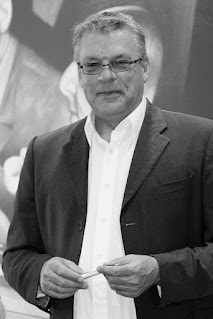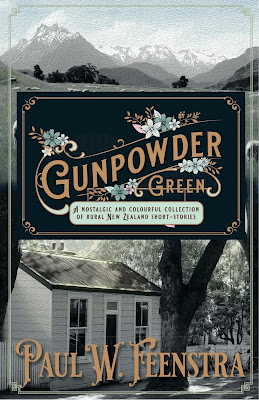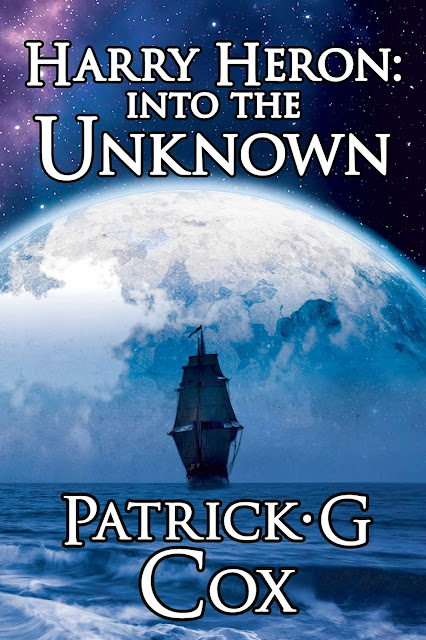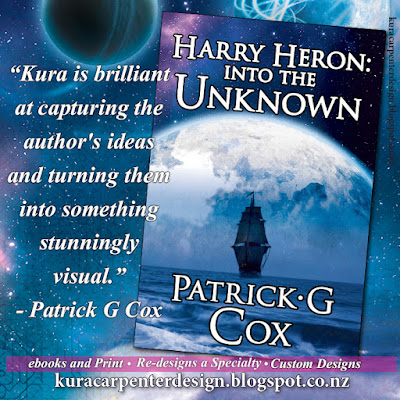Mary Brock Jones' novel
Torn, the first in her romantic science fiction Arcadian series, is
being launched today.
Mary Brock Jones has
written several historical and science fiction novels. Her novel Pay
the Piper, the second book in Mary’s Hathe science
fiction series was a finalist in the 2016 RUBY’s Romantic Book of
the Year awarded by the Romance Writers of Australia.
Mary,
welcome, Please tell us a little bit about yourself:
1) What sent you down
the path of writing romantic science fiction?
I've always loved
science fiction, right from my early teens. I started out with
Asimov and Heinlein, but then gravitated towards writers such as Anne
McCaffrey, Orson Scott Card, Robert Silverberg, Lois McMaster Bujold
and Catherine Asaro. Writers of scifi where character was as
important as technology. But I am also an avid reader of the romance
genre, as well as historicals.
I found that the
stories of people, how they live in strange worlds and what matters
to them, interest me more than just the science alone. I love gizmos,
and creating new ones is part of the best fun of the world building
side of scifi, but always it's the people in the story that fascinate
me most, finding what is at the heart of my characters. And romance
is the most fundamental driver of stories we have. Humans are a
social animal, family is important as are the bonds that unite them,
and so it seems very natural to me that stories with a romantic
element will capture our interest. I know they do me, and romantic
science fiction just seems to unite all the strands of storytelling
that I enjoy most - world building, adventure, intrigue and suspense,
all spun together in a deeply satisfying romantic tale.
"Requirement for anyone wanting to go down the
self-publishing route:
First is a good, strong story - get it professionally edited, that's absolutely essential.
Next you must have
a professionally designed cover.
An effective cover is the first and best chance to capture your
reader, so it has to be enticing, look good in thumbnail and
immediately tell the reader the genre of the book." - Mary Brock Jones
2) What appeals to you
about bringing romance to a genre that has atypically been lacking in
romantic elements?
I think romance has
always been a part of the science fiction world, but too often it is
assumed that women don't like science, have no interest in
mathematics, and are solely concerned with the humanities. Whereas
'proper' science fiction only deals with hard scifi stories. This is
not true. Women have been writing science fiction and telling
stories about science and people for a long time - after all, Mary
Shelley's "Frankenstein" is recognised as the first science
fiction novel.
But too often
publishers, reviewers and the general literary world assume that
science fiction is written for and by men only. Well, I love scifi
and so do a large number of women out there. I think it's more that
scifi with a romantic element is not talked about much, but as a
genre, romantic scifi is gaining increasing popularity.
"I think romance has
always been a part of the science fiction world, but too often it is
assumed that women don't like science, have no interest in
mathematics, and are solely concerned with the humanities." - Mary Brock Jones
3) What sort/age-of
readers would most enjoy Torn?
I would have to say
that Torn is best suited to an adult audience, those who
enjoy both adventures and stories that challenge their ideas.
4) Torn involves
ecological themes that reflect problems currently faced in the real
world. Was there a particular real world crisis/discovery that
sparked ideas for your novel?
I've thought for some
time that climate change is the most critical issue facing our world
at present, but I've also long had a fascination with ecology. I can
still remember as a young child being taken for a visit to a local
creek, and being totally fascinated by the various bugs and critters
our teacher showed us that day. My first degree was in Zoology and I
was raised on a farm, so I guess ecology has been a part of my life
for a very long time.
An event that did
galvanise me though was the GFC, and the worldwide pattern of
governments sacrificing the public sector to keep big business happy,
culminating in the US congress stopping the pay of ordinary officials
for some weeks for pure political gamesmanship. Officials that
included the US park rangers we had met a year previously. Men and
women deeply committed to preserving the history and environment of
the US and always ready to share their knowledge but treated as of no
consequence on that occasion by the so-called establishment.
One of the most
serious, and I think least recognised, of the effects of that whole
financial crisis was the huge brake it put on getting the world to
focus its efforts on dealing with climate and other environmental
issues. Luckily there is a huge groundswell of people who know that
as a planet we cannot put this off. People power will win the day!
5)What was your
favourite part in researching for the novel?
I'm not sure if it was
my favourite part, but working out the meteorological aspects of the
story were certainly the most challenging!
6) What has been the
hardest part with promoting your work?
Just getting it out
there. Like most writers, I tend to be somewhat introverted, so
having to push yourself forward and praise your own work is hugely
challenging. Plus I am a decided technical clutz when it comes to IT
stuff, and to self-publish you have to learn a whole pile of new
computer skills. My poor laptop has been subjected to some truly
awful verbal abuse at times.
There are so many books
being published at present; finding ways to push your own book above
the parapet to be noticed is a definite challenge, and something that
you have to keep reminding yourself can only be done one step at a
time. You have to somehow keep believing in yourself while you inch
those books slowly, so slowly up the pile.
7) Can you please offer
any tips to others considering self-publishing especially ones you
wished you knew when you started?
Oh my, when I started
out I think I made every mistake possible! Beginning with trying to
publish two full-sized books simultaneously, one of which had a
cliffhanger ending (readers hate that, I have since discovered).
So
the very first requirement for anyone wanting to go down the
self-publishing is a very good sense of humour (and a big wad of cold
hard money to fund it helps too.)
So first you have to
have a good, strong story. Then get it professionally edited - that's
where the cold hard cash comes in. Proper editing is expensive, but
absolutely essential.
Next you must have
a professionally designed cover - thank you for my lovely cover,
Kura. An effective cover is the first and best chance to capture your
reader, so it has to be enticing, look good in thumbnail and
immediately tell the reader the genre of the book. That's why the
cover of Torn has a spaceship and horses on it. This is
science fiction adventure with a big dollop of the romantic - and I
hasten to add that, yes, there really is horse-riding in the story,
much to my heroine's horror.

Formatting for e-book
is not hard, but I would recommend getting it done for you the first
time round. Far less stressful. I just about had a nervous break down
when I tried it, until
V.L.Dreyer came
to my rescue and did it for me. I have since learned how to format
for e-book, mostly by following the instructions in Mark Coker's
"Smashwords Style Guide", but needed to refer back to the
original formatting as a template to make sense of it all - not being
technically literate at the best of times. It's not hard once you get
the hang of it, as long as you set aside a time when you will be free
from distractions and can take it methodically step by step.
"There are so many books
being published at present; finding ways to push your own book above
the parapet to be noticed is a definite challenge, and something that
you have to keep reminding yourself can only be done one step at a
time." - Mary Brock Jones
The hardest part for me
comes next - Marketing! Discoverability is the name of the game in
Indie publishing - and for that you need REVIEWS - and yes, the
capitals are deliberate. Reviews are that important - most
particularly, reviews on Amazon. Further, they must be
legitimate ones - Amazon has very strict rules aimed at protecting
their customers from fake reviews, so read the guidelines and make
sure to follow them. This time,
Torn is on netgalley, courtesy of a
netgalley coop group ( found through
http://www.kboards.com/ ),
plus I have sent ARCs [Advance Reader Copies] to a number of review sites and put out a
newsletter (another of those new tech things I had to learn about).

Most importantly,
before trying to self-publish, learn as much as possible through
reading, websites, podcasts etc. The self-publishing community is
widespread and very generous. My best source of advice is
Joanna Pennat The Creative Penn,
who also includes a large number of references in her podcast,
website and various books, but join writers organisations, facebook
groups, and some of the Indie support groups. Indie publishers are a
very supportive community of writers and always willing to pass on
what they have learned. There is also a huge amount of advice
on the KDP (Amazon), Smashwords and Draft2Digital websites.
8) Torn is the first in
your romantic science fiction Arcadian series, are you
working on a sequel and what’s it about?
I'm still working on
the third in my Hathe series, but after that I will be writing the
story of Caleb's brother, Ethan. He is a man who loves the business
that his family has created. It's all he has ever wanted, but Caleb's
actions in Torn have both put that in jeopardy and forced Ethan to
question everything he thought he knew.
And then he is brought
up short by a woman on the other side of the business divide. A union
organiser who has never known what it is to be rich and comfortable,
but one who will not back down to anyone when it comes to protecting
those she serves. This book continues the climate change theme, but
also brings in the economic divide. Can we judge people only by the
size of their bank balance - big or small?
Thank you so much for sharing your advice and experiences with us today, Mary, I wish you every success. Here's where to learn more about Mary and her novels:
 |
| Mary Brock Jones |






























